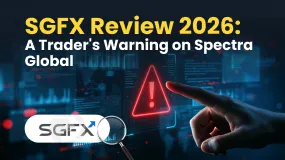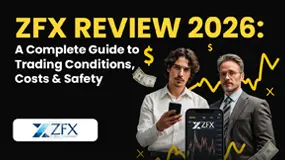The USD Index Recedes from Its Recent Highs and Passes 104.00 Ahead of the Latest Economic Data
Abstract:The dollar index firmed up above 104 on Wednesday, holding near its highest levels in six weeks as stronger-than-expected US economic data and hawkish remarks from Federal Reserve officials buoyed the currency. Latest data pointed to still elevated inflationary pressures and a robust jobs market in the US, supporting the case for further monetary tightening.

The dollar index firmed up above 104 on Wednesday, holding near its highest levels in six weeks as stronger-than-expected US economic data and hawkish remarks from Federal Reserve officials buoyed the currency. Latest data pointed to still elevated inflationary pressures and a robust jobs market in the US, supporting the case for further monetary tightening.
Analyzing the data for the USD Index
In the wake of Wednesday's bullish attempt to level just beyond the 104.00 hurdles, the index remains within the current consolidative theme.
Due to the firmer-than-expected results from US fundamentals as well as the unabated hawkish narrative presented by Fed speakers, the dollar has regained traction. The recent bid bias in the dollar appears to be a result of speculation of a higher terminal rate and a tighter-for-longer Fed stance, which appears to be the cause of the recent higher terminal rate speculation.
This will be an interesting session data-wise in the US, as usual, Initial Claims will be released first, followed by Producer Prices, Building Permits, Housing Starts, and the Philly Fed Manufacturing Index.
The Cleveland Fed's L.Mester (2024 voter, hawk), the St. Louis Fed's J.Bullard (2025 voter, hawk), and the FOMC Governor's L.Cook (permanent voter, centrist) will all speak later in the NA session.
What to look for around USD
In the context of the persistent range-bound mood and ahead of further key US results in the coming week, the dollar remains within a consolidation phase near the 104.00 level.
There is a likelihood that the Fed's normalization process narrative will pivot or fail, as well as Fed speakers' hawkish messages, to remain at the forefront of the debate. As a result of US inflation figures for the month of January, consumer prices are still elevated, the labor market remains tight, and the economy continues to be resilient.
The loss of traction in wage inflation - as per the latest US jobs report -, however, seems to support the idea that the Fed's tightening cycle is starting to have an impact on the still robust US labor market.
Key events in the US this week:
Permits for Buildings, Housing Starts, Initial Jobless Claims, Philly Fed Index (Thursday), and the CB Leading Index (Friday).
The following issues are currently on the back burner:Growing conviction of a soft landing of the US economy. Fed's pivot. Geopolitical effervescence against Russia and China. US-China trade conflict. Slower interest rate hikes by the Fed versus shrinking odds of a recession in the next few months.
USD Index relevant levels
Now, the index is retreating 0.07% at 103.73 and should it breach 100.82 (2023 low February 2), the index will be able to reach 100.00 (psychological level) as well as 99.81 (weekly low April 21, 2021). The next-up barrier, however, is 104.11 (monthly high February 15), followed by 105.63 (2023 high January 6), and finally 106.44 (200-day SMA).
The United States Dollar Index measures the performance of the dollar against a basket of other currencies including EUR, JPY, GBP, CAD, CHF and SEK. The EUR is, by far, the largest component of the index, making up 57.6% of the basket followed by JPY (13.6%), GBP (11.9%), CAD (9.1%), SEK (4.2%), and CHF (3.6%).

Read more

Is SGFX Legit? A 2026 Deep Dive Investigation
Finding a trustworthy forex and CFD broker can be overwhelming, especially with new platforms constantly appearing. One name that has raised questions from traders is SGFX, also known as Spectra Global. With promises of advanced trading technology and competitive conditions, it might seem appealing. However, the important question remains: Is SGFX legit? This complete 2026 review looks beyond the marketing materials to provide a thorough, fact-based analysis. We will examine SGFX's company structure, check its regulatory claims, review its fee structure, and look at recent user feedback. Our goal is to give you the information needed to make a safe and smart decision about your trading capital.

SGFX Review 2026: A Trader's Warning on Spectra Global
If you are looking for an "SGFX Review" or want to know the "SGFX Pros and Cons," you have found an important resource. You probably want to know, "Is SGFX a safe and trustworthy broker?" Based on our detailed research, the answer is clearly no. While SGFX (also called Spectra Global) looks modern and professional, we have found serious warning signs that every potential investor needs to know about before investing. This review will get straight to the point. We will immediately discuss the main problems that make this broker extremely risky. These include weak and misleading regulation from offshore locations, questionable trading rules designed to get large deposits, and a worrying pattern of serious complaints from users, especially about not being able to withdraw. This article will give you a complete, fact-based analysis of how SGFX operates to help you make a smart and safe decision.

ZFX Review 2026: A Complete Guide to Trading Conditions, Costs & Safety
When traders look for trustworthy brokers in today's busy market, ZFX stands out as a major global company backed by the Zeal Group. The main question for anyone thinking about using them is simple: What is ZFX, and can you trust it? This broker has an interesting but important split personality. It works under a parent company that follows strict UK financial rules, but most regular customers actually sign up through a different offshore company. This creates a gap between how safe people think it is and how much protection traders actually get. The goal of this 2026 review is to give you a complete, fair look at ZFX's safety, costs, and features. We'll give you an honest view of what's good and bad about it, so you can make a smart choice based on facts, not advertising. Our analysis will look at its regulations, trading conditions, fees, and the important risks you need to know about.

WikiEXPO Global Expert Interviews Yiannos Ashiotis:How Strong Governance Drives Financial Innovation
As WikiEXPO Dubai concludes successfully, we had the pleasure of interviewing Yiannos Ashiotis, the Group Managing Partner of Pnyx Hill and the Board Chairman of Revolut Digital Assets Europe.
WikiFX Broker
Latest News
Fed’s Paulson Douses Rate Cut Hopes, Strengthening 'Higher for Longer' Case
Precious Metals Surge: Central Banks and Fed Outlook Fuel 'Bare-Knuckle' Bull Market
RIFAN FINANCINDO BERJANGKA Review (2025): Is it Safe or a Scam?
Is BotBro Legit or a Scam? 5 Key Questions Answered (2025)
WAYONE CAPITAL Review 2025: Institutional Audit & Risk Assessment
Bull Waves Regulation Uncovered: A Deep Look into Their FSA License and Safety
OPEC+ Stands Pat: Output Steady Amidst Geopolitical Storm
XTRADE Broker Analysis: Understanding XTRADE Regulation & Verified XTRADE Review
Oil Markets on Edge: OPEC+ Holds Firm Amid Venezuelan Turmoil
Geopolitical Shock: Trump's Venezuela Raid Sparks Oil Volatility & Impeachment Threats
Rate Calc


